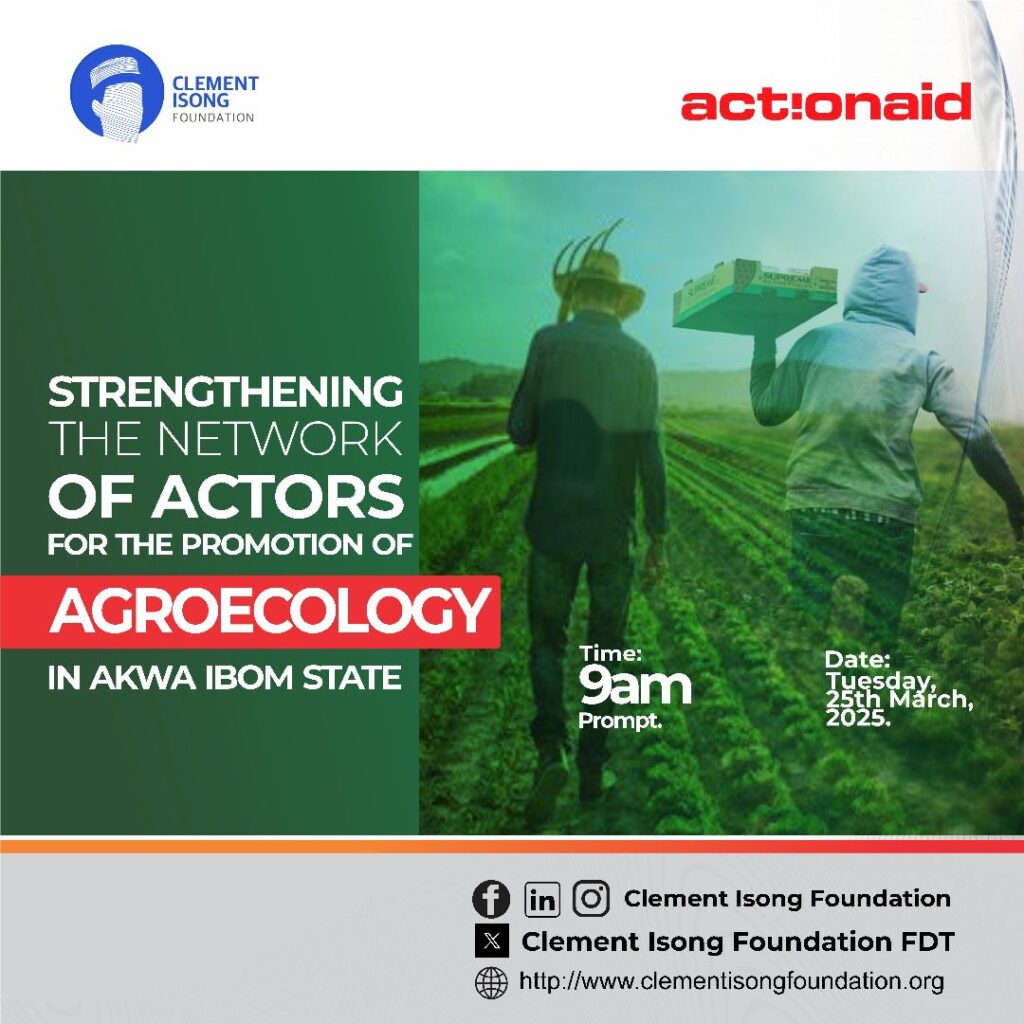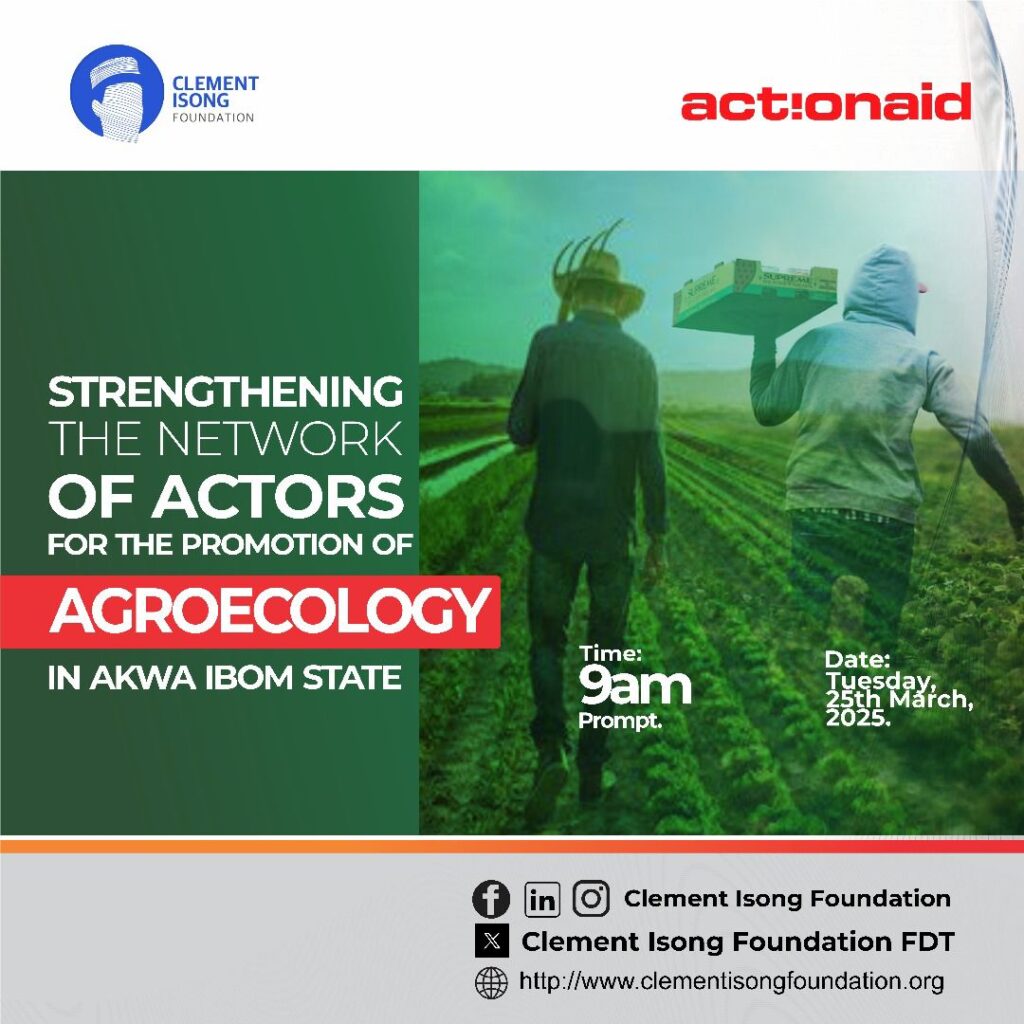
Agricultural experts, policymakers, and farmers have insisted on the need for enhanced agroecological practices to improve food security, environmental sustainability, and economic growth in Akwa Ibom State.
This resolution was reached at the Agroecology Knowledge Sharing meeting organized by the Clement Isong Foundation (CIF) with support from ActionAid Nigeria in Uyo on Wednesday.
The event, themed “Strengthening the Network of Actors for the Promotion of Agroecology in Akwa Ibom State”, brought together key stakeholders, including representatives from the Bank of Agriculture (BOA), the Central Bank of Nigeria (CBN), the Akwa Ibom State Ministry of Agriculture, the All Farmers Association of Nigeria (AFAN), the Smallholder Women Farmers Organization of Nigeria (SWOFON), youth farmers, agroecology practitioners, researchers, and representatives from civil society and the private sector.
Speaking at the event, Dr. Caroline Gordian
Project Manager, Clememt Isong Foundation highlighted the achievements of the Strategic Partnership Agreement (SPA II) Project in training young farmers in organic agriculture. She called for increased government funding for agroecology in the state’s agricultural budget
“There is an urgent need to prioritize agroecological practices in the agricultural sector. Increased funding and policy support will enable more farmers to transition to organic farming, ultimately ensuring better health outcomes and environmental sustainability,” she said
Presenting the Market Systems Approach to
Agroecology and Sales, Zonal Coordinator, Nigeria Agribusiness and Agro-Industry Development Initiative, Mr. Howard Usen stressed the importance of market systems in strengthening agroecology. He harped o the need for value chain enhancement, policy harmonization, and certification initiatives to improve farmers’ market access.
In his words “A well-structured market system is essential for the success of agroecology. Digitalizing agroecological processes will not only improve traceability but also enhance competitiveness in both local and international markets,” he noted.
Representatives from BOA and CBN highlighted financial opportunities available to farmers, stressing the need for proper documentation and financial literacy to access credit facilities.
They also made strong case for the recapitalization of the BOA to provide more financial support for smallholder farmers.
“Many farmers struggle with access to finance due to inadequate documentation and lack of awareness. Strengthening financial education and increasing capital for agricultural loans will significantly boost the sector,” a BOA representative said.
Stakeholders at the event identified several challenges hampering the adoption of agroecology in Akwa Ibom, including poor market access, financial constraints, policy inconsistencies, and the lack of integration between research and practical farming applications. They also noted that women farmers face unique challenges, including limited access to mechanized tools and food processing infrastructure.
To address these issues, participants recommended strengthening community-driven training programs, reducing dependence on inorganic farm inputs, harmonizing agricultural policies, and conducting Environmental Impact Assessments (EIAs) for agricultural projects.
They also called for increased financial literacy among farmers, the establishment of an organic farmers’ network, and leveraging digital platforms for agroecological advocacy.
The Clement Isong Foundation and ActionAid Nigeria expressed appreciation to all participants, facilitators, and institutions for their commitment to advancing agroecology. They commended the representatives of BOA, CBN, and the Akwa Ibom State Ministry of Agriculture and Environment for their contributions to promoting sustainable agriculture in the state.

